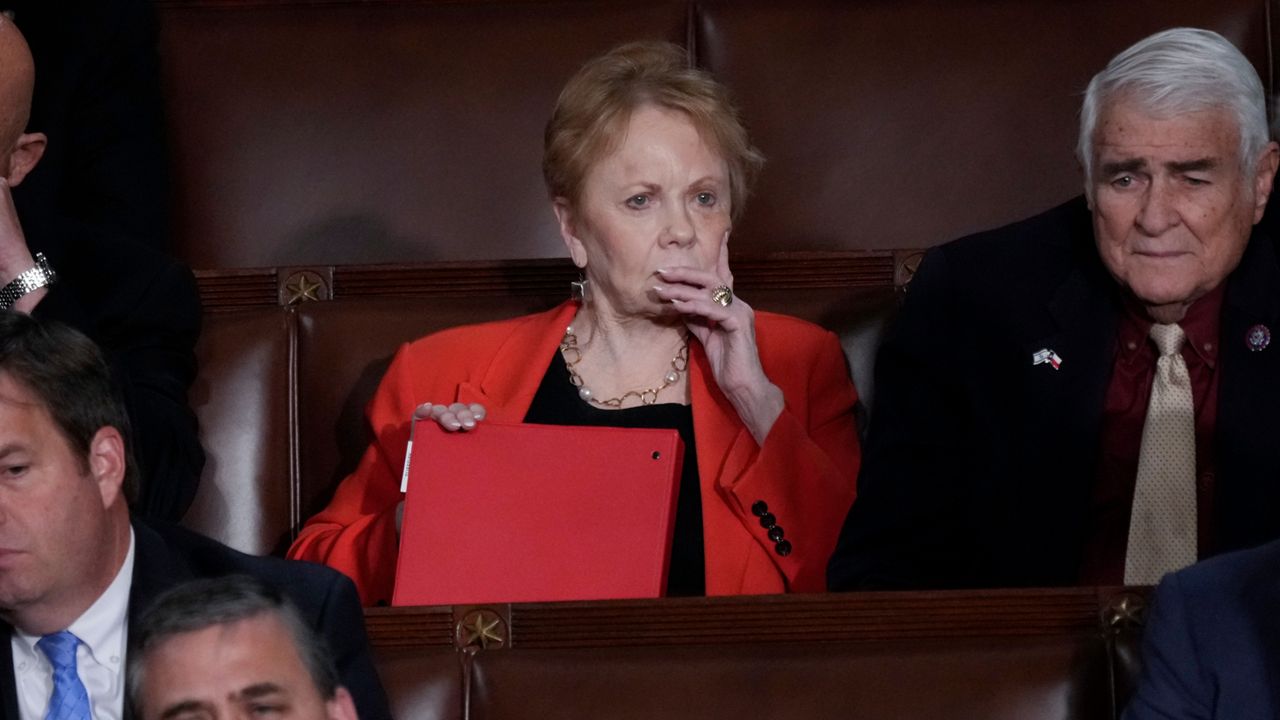FORT WORTH, Texas — Molly Davidson has lived on her Riverside-area property since she took her first breath 50 years ago. She never imagined she’d walk outside to see some of her belongings piled near the curb. Her landlord cleared out the garage apartment behind her house, where she and her six-year-old autistic son lived. She had moved back into the main house some time ago to take care of her mother, who had Alzheimer’s disease before passing away.
Like many, the pandemic and resulting economic collapse crushed Davidson’s livelihood. Her antique business has cratered since March. Her son requires around-the-clock assistance, and her financial outlook has become bleaker than most. She was forced to sell her house but agreed to stay as a rental tenant. She’s run through the windfall of the sale and fallen behind on just about every imaginable bill. Her landlord recently told her she has three days to vacate her childhood home — even though he is not legally allowed to evict her.
“I'm supposed to be moving with an autistic child, taking care of a household, and trying to sell things so that I can have some sort of Christmas for my son,” she said. “That’s not going to happen now.”
Davidson is just one of the countless number of people in Fort Worth facing illegal eviction. Since March, every level of government has passed initiatives to curtail evictions. On the state level, Gov. Greg Abbott suspended evictions on March 19. The feds passed the $2.2 trillion Coronavirus Aid, Relief, and Economic Security Act — also known as the CARES Act — less than two weeks later on March 27. In September, the Centers for Disease Control and Prevention issued an order to pause evictions until December 31, arguing that doing so would allow people to isolate more easily and slow the spread of the coronavirus.
Though Davidson’s landlord hasn’t officially filed for an eviction, which is legally required, Molly said she has faced his threats and intimidation. Aside from banishing her belongings to the curb, he’s also cut off a lock on her gate. According to state law, a landlord must file an eviction with the county and then give the tenant three days to respond. Instead, Davidson’s landlord has offered her a place to stay at a far-away duplex in South Dallas and offered to house her antiques and other belongings at a storage unit ever farther away in Little Elm. Davidson said her car doesn’t work well and probably wouldn’t even make it to South Dallas.
I'm a single mom, and I have no family — none … and he knows it.“That was his loophole,” Davidson said. “He's aware of the CDC moratorium. The loophole that he tried to crawl through was offering me another place to live. He's threatened me with seizure of property. I'm a single mom, and I have no family — none … and he knows it.”
Davidson would not tell Spectrum News 1 her landlord’s name, but according to data from the Tarrant Appraisal District, Sam White owns the property, along with several other rental properties around North Texas.
White is just one of many landlords who have ignored the various eviction moratoriums. Davidson said White refused to become a vendor for the CARES Act, which forbade landlords from filing evictions for unpaid rent at properties that accepted Housing Choice vouchers or were backed by federal mortgages or low-income housing tax credits.
“He didn’t want [the city] to have his tax information,” she said.
Becky Moseley is a staff attorney for Legal Aid of Northwest Texas, a nonprofit that provides free civil legal help to low-income residents. Though she wouldn’t comment specifically about Davidson’s case, she did say that someone whose eviction creates transportation issues might still be protected under the CDC’s order. The order states that a tenant can’t have access to any “available housing” that would either be cost-neutral or less than than their current situation.
“She's going to have to buy a car,” she said. “And then I would argue there was an overall increase of housing costs.”
Spectrum News 1 attempted to contact White and left messages on a phone number associated with one of his Dallas properties.
Landlords have filed more than 7,500 evictions in Fort Worth since March 15, roughly when the pandemic began to change daily life for most Americans. Just last week, as COVID-19 cases around the country surged to new record-breaking levels daily, Fort Worth landlords filed for 446 evictions – two weeks before Christmas. By comparison, landlords in Austin have filed for only 725 evictions over the same period, and just 22 last week.
Eviction Lab, a team of researchers housed at Princeton University, who advocate for affordable housing, has been tracking evictions in 27 cities since COVID-19 hit U.S. shores. Despite local, state, and federal programs and grants, and various moratoriums on evictions, people around the country are still losing their homes during the worst economic, employment, and public health crisis the country has endured in almost 100 years. According to Eviction Lab’s data, Fort Worth landlords are some of the worst offenders.
In Fort Worth, eviction numbers fell sharply when the practice was suspended across Texas. Eviction protections in Texas began to expire on May 18. New filings steadily increased over the summer, reaching highs in the two weeks between the end of CARES Act protections and enacting the CDC eviction order.
A Fort Worth Star-Telegram report in July revealed that plenty of landlords have been skirting the CARES Act.
“The Star-Telegram researched 942 evictions filed in county courts from June 1 through July 14 and found at least 119, about 13%, were filed at properties that appear to be covered under the CARES Act (the numbers were obtained using open records requests, court records and publicly available databases),” the story said.
Dozens of questionable eviction filings remain on the docket in Tarrant County Justice of the Peace courts. A spokesperson for the courts did not return calls to Spectrum News 1.
Moseley said judges are still allowing some evictions because the language of the law is too vague.
“A big barrier is that you have to be making best efforts, given your individual circumstances, to pay as much as possible on time,” she said. “No one really knows what that means. It's up to the judge If a landlord contests the CDC declaration to make a determination: Is the tenant covered? Did they make their best effort?”
Moseley was emphatic that, to gain protection under the CDC’s order, tenants must fill out a specific declaration and sign it under penalty of perjury, and then give that document to their landlord.
If a landlord violates the order, he or she may be subject to fines and even jail time.
The federal government awarded $6.8 million to the city of Fort Worth to help people who have lost income because of COVID-19. Anyone can apply for a grant of up to $3,600, paid out over three months. A spokesperson for the city said it has handed out money to 1,433 households as of December 1.
The city also offers a bloc grant program for rental assistance that’s helped an additional 867 households.
At Tuesday’s City Council meeting, the council voted to apply to the Texas Department of Housing & Community Affairs for a grant worth $1.8 million. The Texas Emergency Relief Assistance Program sets aside 10 percent of that money specifically for rent relief and eviction aversion, said Victor Turner, the director of the city’s Neighborhood Services Department. The application for that money is due on December 28 and funding will begin on January 15. Turner anticipates that the rental assistance will reach roughly 200 households.
“I think we'll still have to continue to look for ways to meet the need,” Turner said. “I don't think that will address all the applicants that are in our pipeline. The state program does allow up to six consecutive months of rent, so that will be helpful.”
Moseley, who is based in Dallas, pointed to additional protections for renters Dallas has enacted that aren’t available in Tarrant County. For example, a typical eviction only requires three days' notice. In Dallas, if the reason the tenant is behind is related to COVID-19, landlords must give their tenants 60 days.
In many cases, once people have received benefits, she added, they are typically not eligible for more money. And when the calendar turns to January 1, people all over the country will lose protections, including Davidson.
If something happened to me and I passed away, the options for my son are not good“I'm high-risk,” she said. “I've been a lifelong smoker. I have the beginnings of COPD. I have high blood pressure. If something happened to me and I passed away, the options for my son are not good.”
Davidson said she hopes to be out of her childhood home sooner than later, if for no other reason than to extricate herself from the harassment she’s endured at the hands of her landlord.
“I think he's just trying to intimidate me, harass me, and do everything that he can to get me out,” she said. “I would be out if there were a place for us to go. Taking my child to a shelter is not really something that I want to do, but if he's going to evict me, then we're going to go through the whole process. He has treated me badly.”










